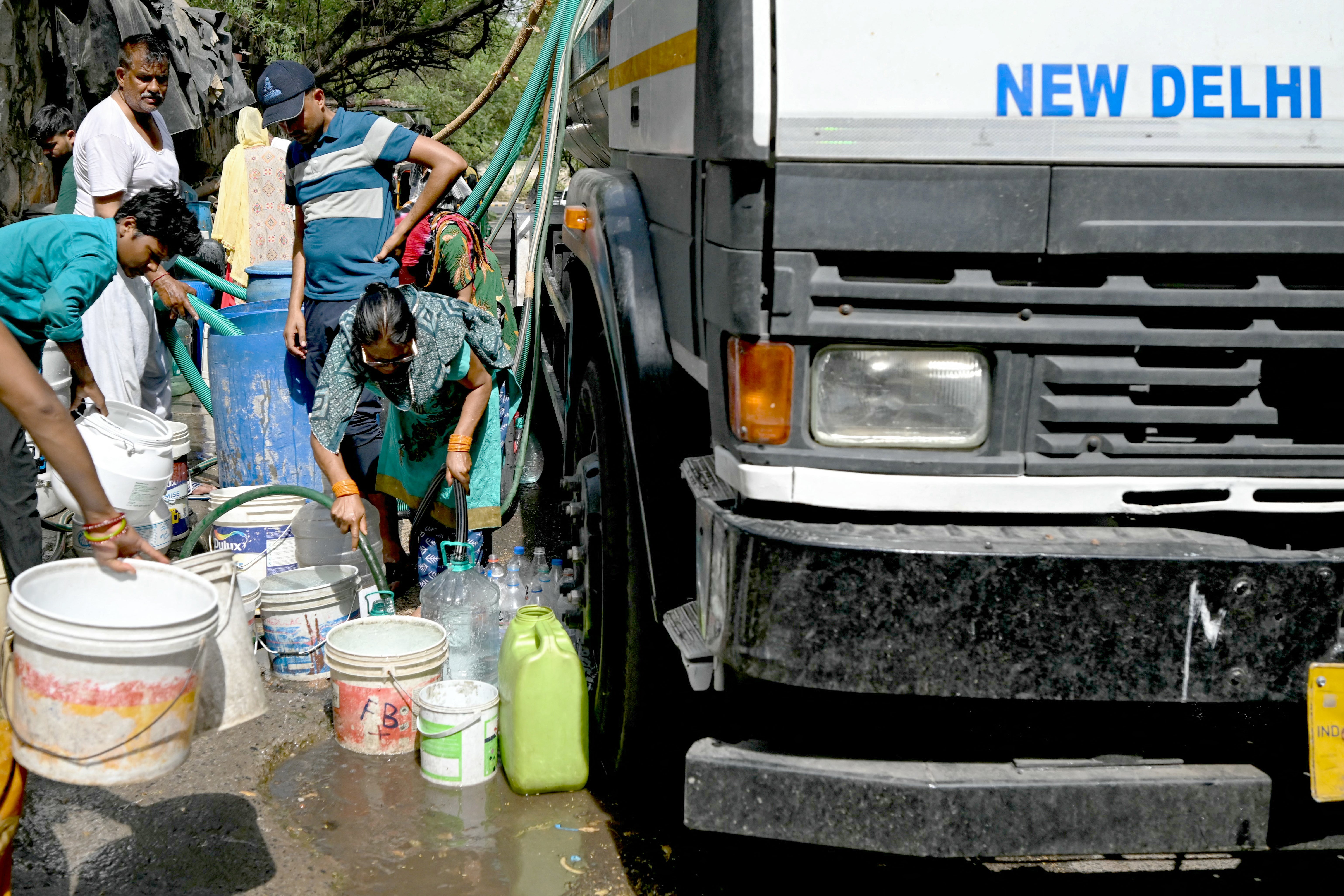Extreme heat has gripped India this week in what is now confirmed as the country’s “longest heatwave on record”, with more than 40,000 suspected cases of heatstroke reported.
At least 52 bodies have been brought to hospitals in the past two days. Times of India Most of them were poor outdoor workers, according to the report.
Government statistics record 110 deaths between March 1 and June 18, but activists and experts say the figure is likely much higher.
In the last 72 hours alone, five people have died of heatstroke in Delhi. table of contents Temperatures in Delhi have again risen above 44 degrees.
The city experienced its hottest night on record on Wednesday, with the minimum temperature hitting 35.2 degrees Celsius, eight degrees above normal, according to the weather bureau.
Nighttime temperatures are especially dangerous to the human body as they deprive the body of necessary rest due to heat stress.
Doctors at Safdarjung Hospital, where two of the five deaths occurred, said at least 28 patients had been diagnosed with heat stroke in recent days, the paper reported.
At the hospital’s sports injury centre, several surgeries have also been postponed due to the water shortage, said Dr Hemant Rajula. Hindustan Times Correspondent shared on X.
The Ministry of Health ordered federal and state agencies to respond to cases immediately and instructed hospitals to free up beds.
Anyone can get heatstroke, which can cause dizziness, headaches, shivering and dry throat, but it is especially dangerous for those who are vulnerable to heatstroke, such as children, the elderly and sick people.
In more severe cases, a body temperature above 105°F (40.6°C) can lead to heat stroke.
One of the patients who died at Delhi’s RML Hospital on Tuesday had a temperature of 110F (43C). A high temperature is a medical emergency that can lead to long-term organ damage and death. Symptoms include rapid breathing, confusion or seizures and nausea.
India has recorded its longest heatwave ever this year, with millions of people living in frigid temperatures in Delhi since April.
The heatwave has worsened the water and electricity crisis, with people queuing up for water tankers amid fears that their regular supply may be cut off, and fines being imposed on those who waste water.

Delhi’s Water Minister Atish Athish has threatened an indefinite strike in a letter to Prime Minister Narendra Modi, as she blames neighbouring Haryana for not releasing surplus water to Delhi.
Meanwhile, power outages are increasing and engineers warn that record electricity consumption as more appliances are turned on to beat the heat is putting excessive strain on the power grid.
The heatwave is also stressing animals: on Tuesday, the extreme heat caused several bats to fall from trees and die in Kanpur, Uttar Pradesh. The bodies were found in the city’s Nanarao Park, which is home to hundreds of bats.
Earlier, dozens of monkeys were found drowned in a well in Jharkhand state after searching for water in a drying lake.
This summer, billions of people across the Northern Hemisphere, including the United States as well as countries in Southeast Asia and the Middle East, are experiencing record temperatures.
As temperatures continue to rise over the next few years due to the climate crisis, the dangers of humidity are expected to increase as well. Warmer air can hold more moisture, and more moisture in the air makes it harder to cool yourself down by sweating.
Heat is not recorded as a cause of death in many countries, but a 2021 study Lancet It’s estimated that just under half a million people die each year from extreme heat, a conservative figure that lacks data for many low-income countries.










